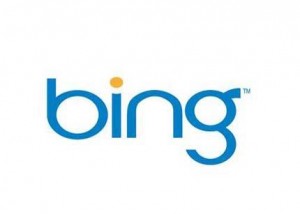 Bing Talks About its Link-Building Policy
Bing Talks About its Link-Building Policy
It’s easy for businesses to get caught up in Google’s expectations for their sites, when trying to market through search. That’s certainly a wise thing to do, considering Google dominates the search market by a huge margin. Still, there are other search engines that people are using, and it is also wise to make sure your site is performing to the best of its ability in those too.
I’m obviously talking about Yahoo and Bing, but Yahoo’s share is declining, while Bing’s is gaining. Furthermore, if the deal between Microsoft and Yahoo goes through, Bing search will be talking over Yahoo anyway.
We don’t hear as much about what Bing wants out of a site for rankings, but Rick DeJarnette of Bing Webmaster Centre has shared some dos and don’ts of link-building for Bing. Not surprisingly, a lot of his advice for honouring Bing’s policy does not differ too much from advice that Google would give you. It is, however, still always nice to see how they feel, just to clear up any possible confusion.
Like Google, Bing places great emphasis on quality links to determine its rankings. “Just don’t make the mistake of believing it will result in instant gratification. Successful link building efforts require a long-term commitment, not an overnight or turnkey solution,” says DeJarnette. “You need to continually invest in link building efforts with creativity and time.”
What Not To Do
DeJarnette shared a list of things that you should avoid in your link building efforts, if it is a good Bing ranking that you are after. Here is what Bing says will get your site reviewed more closely by staff:
- The number of inbound links suddenly increases by orders of magnitude in a short period of time
- Many inbound links coming from irrelevant blog comments and/or from unrelated sites
- Using hidden links in your pages
- Receiving inbound links from paid link farms, link exchanges, or known “bad neighbourhoods” on the Web
- Linking out to known web spam sites
“When probable manipulation is detected, a spam rank factor is applied to a site, depending upon the type and severity of the infraction,” says DeJarnette. “If the spam rating is high, a site can be penalized with a lowered rank. If the violations are egregious, a site can be temporarily or even permanently purged from the index.”
What To Do
DeJarnette also shared some tips for getting more quality links. Following are Bing’s tips for effective link building (paraphrased):
- Develop your site as a business brand and brand it consistently
- Find relevant industry experts, product reviewers, bloggers, and media folk, and make sure they’re aware of your site/content
- Publish concise, informative press releases online
- Publish expert articles to online article directories
- Participate in relevant conversations on blogs/forums, referring back to your site’s content when applicable
- Use social networks to connect to industry influencers (make sure you have links to your site in your profiles)
- Create an email newsletter with notifications of new content
- Launch a blog/forum on your site
- Participate in relevant industry associations and especially in their online forums
- Strive to become a trusted expert voice for your industry, while promoting your site
Most of the stuff DeJarnette shared is nothing any savvy search marketer is not already aware of. That said, there are clearly plenty of online (and offline for that matter) businesses out there that don’t have savvy search marketers on the payroll. It can be quite helpful when a search engine itself lays out what to do and what not to do to help webmasters get better rankings.
*Article courtesy of www.WebProNews.com

